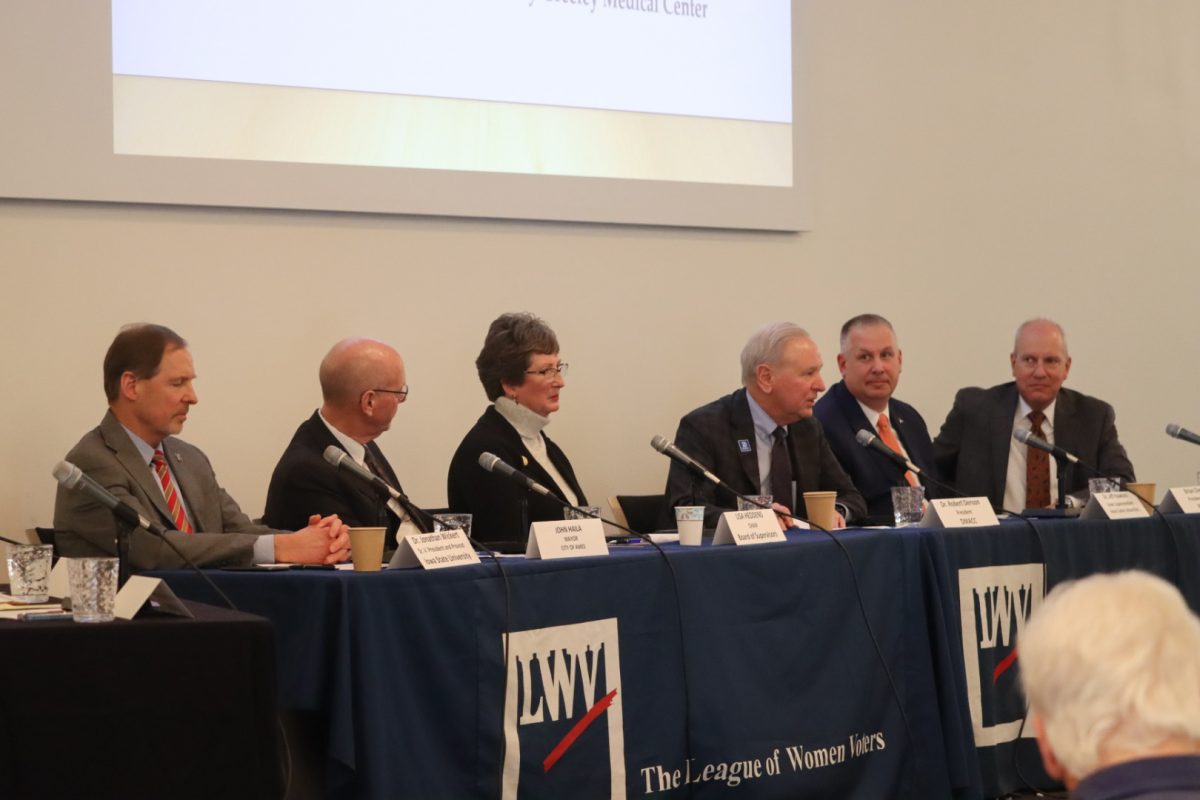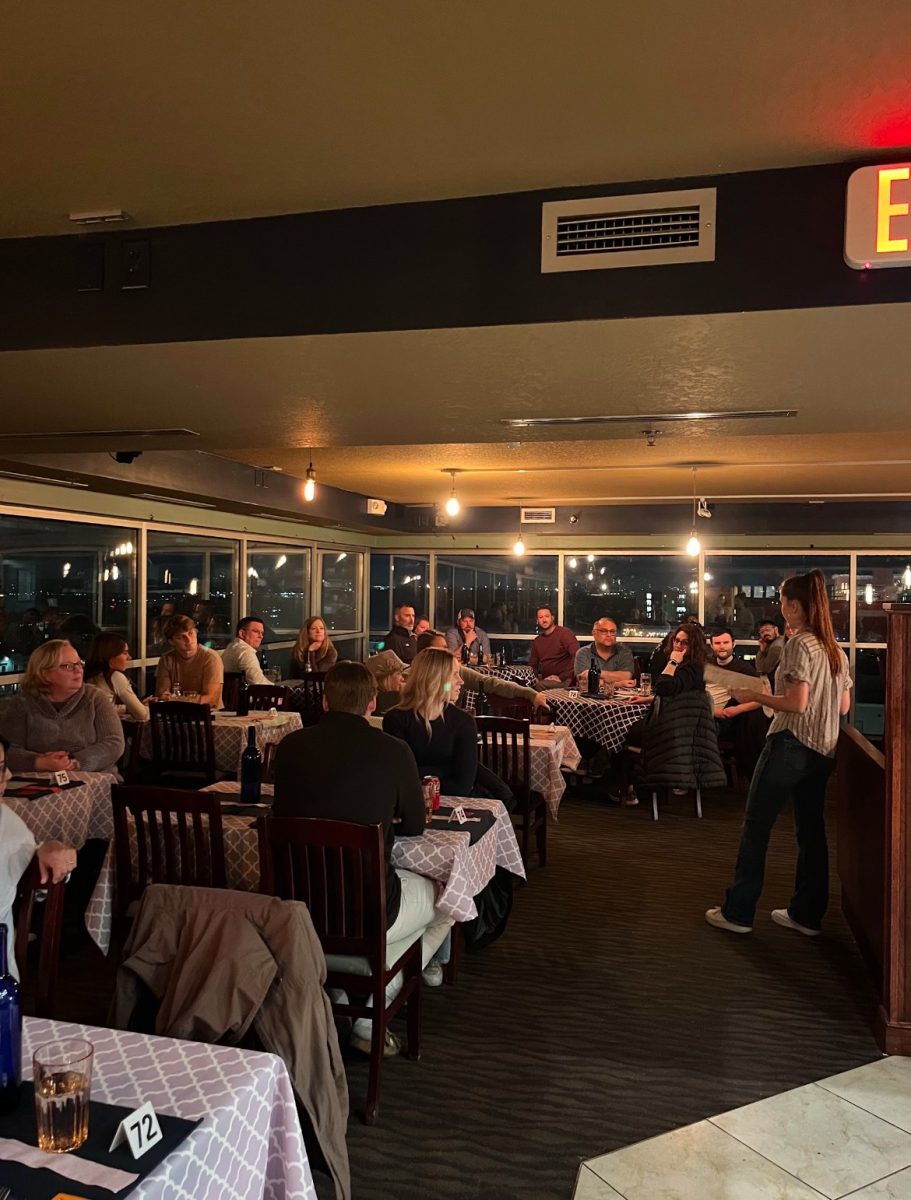Safety lost on students in hookup culture
October 7, 2010
Hot, wet, dirty or rough; however you like it, you can find it on a college campus.
The “hookup,” society’s new word for meeting and mating, is a developing act swarming college campuses.
From a simple kiss to full-blown intercourse, college students have found a way to fulfill their sexual desires with no strings attached.
National studies have revealed that more than 70 percent of college students will hook up with a casual partner in some form before they graduate.
Teresa Downing-Matibag, assistant professor of sociology, has also recently been involved with multiple studies revealing students’ behaviors and attitudes toward hooking up. Her studies revealed that students are often misinformed about the risks of acquiring a sexually transmitted infection during hookups.
In Downing-Matibag’s study, none of the students who engaged in oral sex during a hookup protected themselves against orally transmitted STIs because they didn’t think it was necessary.
“You [students] need to think about the fact that the person you are giving oral sex to on Friday night might have had unprotected vaginal intercourse with someone else last Saturday. You really don’t know how many sexual partners your hookup partners have had, or whether they used protection,” Downing-Matibag said.
Downing-Matibag is also an adviser for Iowa State’s Relationships on Campus organization and the Intimate Relationships learning community. The two organizations work to teach students how to maintain healthy intimate relationships in the college atmosphere.
Downing-Matibag’s studies revealed students are often unprepared to discuss the use of protection during their hookup encounters. Because hookups are not always planned, students are not prepared for the sexual intimacy that may arbitrarily arise.
Furthermore, Downing-Matibag said, when alcohol is added to the picture, students’ abilities to make healthy protective decisions is critically impaired.
Downing-Matibag said when alcohol is involved, students are more likely to make decisions resulting in life-long consequences.
From pregnancies to rape, alcohol is a critical variable in the hookup equation that may lead to a very negative result.
National statistics state that one out of four women will be sexually assaulted on a college campus while one out of eight women will be raped. Moreover, 75 percent of male students and 55 percent of female students involved in date rape had been drinking or using drugs when the act occurred.
Some scientists argue that hooking up has positive effects. These scientists claim students use hooking up as a practical means of enjoying sexual intimacy without the time and emotional commitments of a longer-term relationship, resulting in less stressful relationship bonds.
Downing-Matibag disagreed with this, claiming frequent hookups prohibit students from learning how to develop emotional attachments. Some students, she said, even experience emotional distress following a hookup due to the lack of compassionate care linked to the “relation.”
Many studies have shown that both male and female students sometimes see hooking up as an opportunity to experience sexual intimacy with someone to whom they are physically attracted.
One of the female students in Downing-Matibag’s study said she hooked up with a guy because “he was a god-man, he was so hot.”
Students said hooking up provides commitment-free sex, the opportunity to enjoy physical intimacy with attractive partners and sometimes even relief from boredom or a way to get over a breakup at no cost.
Misty Prater, campus minister at St. Thomas Aquinas Church and Catholic Student Center, also disagreed. Prater said hooking up is not a positive way to form relationships.
“Hooking up prohibits students from building good habits on how to establish a relationship and how to interact with people in healthy ways,” Prater said.
Downing-Matibag agreed with Prater in saying that “the costs [of hooking up] outweigh the benefits because young people are not learning healthy relationship skills.”
Prater said the Catholic community prohibits all sexual activity outside of marriage, while Downing-Matibag takes a more modern approach to the subject. Downing-Matibag believes that, despite the negative effects of hooking up, students need to be more prepared for the act should it occur.
“Have protection on hand, condoms for vaginal or anal intercourse and dental dams for oral sex. Keep these items on hand for yourself and offer them to friends to help protect them, too,” Downing-Matibag said.
Prater coordinates a sex, love and relationships group that discusses modern culture’s responses to hooking up. Prater said the outreach group strives to support positive decision making about hooking up and provides support for people with questions about the act relative to relationships and even marriage.
With infidelity rates among young married couples rising, Downing-Matibag believes the hookup culture is partially to blame. Furthermore, Matibag warned students that infidelity is even more common among young unmarried couples.
“Just because you are in a steady relationship, does not mean that you aren’t at risk for STDs,” Downing-Matibag said.
Downing-Matibag suggested students get tested at Thielen Student Health Center, which offers many confidential testing, treatment and prevention services at a low cost.
Both Downing-Matibag and Prater agreed students need to be more aware of their sexual habits and begin to take steps to promote their personal health as soon as possible.
There are many things students can do to promote their personal health with the many resources available.







